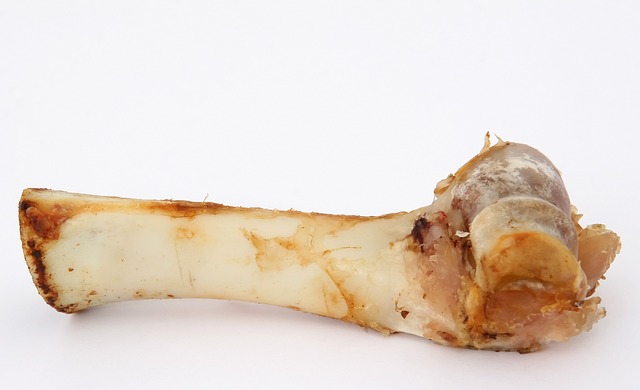The Border Collie, often heralded as the ultimate herding dog, possesses an exceptional intellect and unparalleled work ethic. Renowned for its agility, the Border Collie has consistently earned its spot as a top performer in various dog sports and competitions. The Rhodesian Ridgeback is admired for its fearlessness, making it an ideal protector of its loved ones. Beneath its regal appearance, this breed conceals a loving and gentle heart, making it a cherished member of many households.
By examining the unique traits of these two breeds, you’ll learn about their personalities, exercise requirements, grooming needs, and potential health issues. Whether you’re an experienced dog owner or a first-timer, understanding these aspects will help you care for your new furry friend effectively.
Characteristics of Border Collie and Rhodesian Ridgeback
Border Collies are an incredibly motivated, devoted, and industrious breed. They find their greatest joy in either working or playing and once the day’s tasks are complete, they gladly settle down for some cuddle time. These intelligent canines are keenly sensitive to noise, diligently alerting their owners to visitors, passersby, and any movement in their surroundings. However, they may also exhibit sensitivity to sudden loud sounds like fireworks and thunder.
On the other hand, Ridgebacks are athletic dogs with a moderate level of energy. They forge strong bonds with their families and exhibit a protective temperament. This inclination may make them cautious around strangers, though they are not typically excessive barkers.
| Group | Height | Weight | Temperament | Life Span | Origin | |
|---|---|---|---|---|---|---|
| Border Collie | Herding | 56 to 69 cm | 12 to 20 kg | Loyal, athletic, energetic, alert, intelligent | 10 years minimum | Scotland |
| Rhodesian Ridgeback | Hound | 61 to 69 cm | male 36 to 41 kg, while females 29 to 34 kg | Loyal, athletic, protective, | 10 years minimum | Africa |
Breed History
The Border Collie, an iconic Scottish dog breed, has a rich history intricately connected to the lineage of herding dogs originating from Scotland. While the formal recognition of the modern Border Collie occurred in the late 1800s, Collies and shepherd dogs have existed in Scotland, Britain, and various parts of the world for millennia. Since the earliest days of domesticating sheep and cattle, humans have relied on herding dogs to assist them. It’s plausible that shepherd’s dogs have been present for several thousand years BC.
The Rhodesian Ridgeback, known as African Lion Hound, hails from South Africa. Its history traces back to the 16th century when European explorers discovered the Hottentot tribes living alongside a semi-domesticated dog with a unique “ridge” of hair along its spine. In 1922, Zimbabwean breeders established a standard for the Rhodesian Ridgeback, which remains unchanged today. By the early 1950s, some examples were brought to the United States, leading to the breed’s acceptance as the 112th recognized breed by the American Kennel Club in 1955.
Appearance Comparison

Border Collies were selectively bred for their work-oriented nature, and their physical appearance perfectly suits their purpose. This herding dog, medium in size, boasts a strong and agile body on a lean frame. Border Collies are the epitome of alertness, with their ears poised high on their heads and partially folded at the tip, showcasing their attentive nature. Unlike some other working breeds, their tails are left long and bushy, a constant flurry of joyful wagging.
Rhodesian Ridgeback possesses a robust and muscular physique, highlighted by a unique ridge of backward-growing hair along their back, lending them their fantastic name. Their alert ears complement a smoothly curving tail. Despite their strength, these dogs have a soft side, as evidenced by their round, sparkling eyes that express affection during cuddle time. Their medium-sized ears are set high, broad at the base, and tapering to a rounded end, carried close to the head. Rhodesians typically have black or liver-colored noses, with occasional sightings of brown.
Border Collies and Rhodesian Ridgebacks are distinct breeds with remarkable characteristics that suit their respective roles. While Border Collies excel in herding and showcase their alertness through their ears and tails, Rhodesian Ridgebacks, on the other hand, exhibit strength and affectionate qualities, displaying their unique ridge and expressive eyes.
Size Comparison
Border Collie is a medium-sized dog with a lighter weight and a slightly more compact body than the larger and more muscular Rhodesian Ridgeback. The Border Collie’s height range is notably lower than the Rhodesian Ridgeback’s.
These differences in size and build reflect each breed’s distinct heritage and purpose, with Border Collies bred for their agility and herding abilities.
The Border Collie, a medium-sized herding dog, has an overall height that typically falls between 56 to 69 cm. The withers’ height ranges from 18 to 22 inches (46 to 56 cm). Their body length spans from 71 to 86 cm from the shoulders to the base of the tail. In terms of weight, a typical Border Collie usually weighs between 27 to 45 pounds.
On the other hand, the Rhodesian Ridgeback, a large and muscular breed, boasts a more substantial size than the Border Collie. An adult Rhodesian Ridgeback can weigh between 80 to 91 pounds, while their female counterparts reach slightly lighter weights of 63 to 74 pounds. In terms of height, the Rhodesian Ridgeback stands taller, ranging from 61 to 69 cm.
Coats & Colors
Like many other Herding dogs, Border Collies possess a dual coat comprising an outer layer and an undercoat. The outer coat is characterized by a coarse and slightly wiry texture, designed to repel water and offer protection against wind and snow. As the dog ages, the outer coat may display slight waves. The undercoat is softer and wooly, providing insulation against cold and heat. It plays a crucial role as the “temperature regulator” for the dog, ensuring comfort in varying weather conditions.
Contrary to common misconceptions, Border Collies exhibit stunning coat colors. Beyond the traditional black and white combination, their coats can come in rare shades such as white, lilac, blue, gold, slate merle, and brindle, adding to their beauty and individuality.
While Rhodesian Ridgebacks are known for their striking and distinctive coat, they have a short coat that is dense and smooth to the touch, offering a sleek and polished appearance. The primary colors of their coat typically range from gold to yellow, with various shades of red also being common. This rich color spectrum reflects the breed’s characteristic coloring and adds to its visual appeal.
Personality & Temperament Difference of Border Collies and Rhodesian Ridgebacks
The Border Collie possesses an exceptional aptitude for quick learning and task performance. Its herding instincts make it active, alert, independent, and responsive. While this intelligence can be appealing in the right setting, it can pose challenges for families that lack the time or inclination to provide the dog with mentally stimulating tasks.
This breed is highly playful and interactive, getting along well with people of all ages, but it may be too energetic for young children or elderly individuals. It tends to form strong bonds with one person or family, which can result in aloofness towards strangers, other dogs, or animals.
On the other hand, the Ridgeback exhibits a tranquil and gentle temperament, rarely barking. It enjoys lounging in the sun or by a fireplace. Despite initially appearing as a large, lazy, slow-moving creature, the Ridgeback can be a formidable watchdog, owing to its protective instincts. Ridgebacks are easily trainable, displaying above-average tractability compared to many hound breeds.
Dogs towards Family
Border Collies can excel as fantastic family dogs depending on the family’s characteristics and lifestyle. A mutually beneficial and wonderful relationship can develop if the family is active, engaged, and able to dedicate sufficient time to such a dog.
Another vital factor is outdoor access, as Border Collies can adapt to apartment living if they receive enough exercise outdoors and mental stimulation indoors. They can be a great addition to any family with the right amount of time, energy, and respect for the Border Collie’s nature.
The Rhodesian Ridgeback, renowned for its lion-hunting prowess in Africa, is known for its strength, resilience, and high energy levels. It thrives as a companion for an equally energetic and outgoing family that enjoys outdoor activities like hiking, jogging, and fun-filled adventures. Proper training and socialization play a significant role in shaping the Rhodesian Ridgeback into an excellent family companion. These dogs can become loving and loyal family members with appropriate care and attention.
Kids
Border Collies are generally good with kids but require careful supervision around them due to their somewhat hyperactive nature and tendency to chase and bark. Border Collies are highly trainable and responsive to proper guidance. Implementing consistent training, ensuring adequate socialization, and gradually introducing the dog to the child can be effective strategies to foster a positive relationship between them.
On the other hand, Rhodesian Ridgebacks typically exhibit a very stable temperament and are not aggressive, making them generally good with children. However, it is crucial to clarify expectations with the breeder. As long as the children are taught to respect all animals, there should be minimal issues with the Ridgeback’s interaction with them. It’s essential to rely on the breeder’s intimate knowledge of their dogs and bloodlines to ensure a successful and harmonious match between the Ridgeback and the family.
Other People
When introducing our beloved canine companions to unfamiliar people, a keen awareness of their distinct temperaments is essential. The Border Collie and the Ridgeback, two remarkable breeds, exhibit unique social behaviors requiring careful consideration.
Border Collie dogs are naturally cautious when encountering individuals outside their immediate family circle. The strong bond they form with their family unit makes them protective and alert, especially when they perceive potential threats to their “pack.” Under such circumstances, they may exhibit aggressive behavior to defend their loved ones. Thus, introducing a Border Collie to strangers requires patience, proper training, and gradual socialization to foster positive interactions.
On the other hand, the Ridgeback presents a different social dynamic. This breed is not inherently aggressive but tends to be reserved and aloof around unfamiliar individuals. Ridgebacks may not readily welcome initial advances from people they don’t know. Despite this reserved nature, they have a calm and easy-going disposition, making them tolerant of various situations.
Dogs & Other Animals

Border Collies typically have good intentions as natural herders when interacting with other pets. Generally nonaggressive, they view other pets as potential playmates once familiar with them. However, one must know that some of their herding instincts and behaviors can inadvertently harm other pets. As they instinctively try to gather and control the movements of animals, smaller or more timid pets may find these actions unsettling or stressful.
Similarly, Rhodesian Ridgebacks have a herding history, although their instincts differ from those of Border Collies. While generally nonaggressive, Ridgebacks may need time to warm up to other pets and may be reserved around unfamiliar animals. Due to their high prey drive, smaller pets should be cautiously approached when introducing a Ridgeback.
Behavior Issues
Various behavioral problems in Border Collies can often be attributed to their environment conflicting with their natural instinctive drives or overstimulating their heightened sensitivity and intelligence. These issues may arise when their working abilities and mental stimulation are not adequately satisfied. As an African hunter dog, the Rhodesian Ridgeback is a brilliant breed with moderate to high energy levels, occasionally intensified by its stubborn nature.
Their hunting background can lead to specific behavioral challenges that require proper attention and handling.
Below, you’re going to see a side-by-side comparison of the common behavioral problems between Collies and Ridgebacks:
| Border Collie | Rhodesian Ridgeback |
|---|---|
| Excessive barking | Excessive barking |
| Attention-seeking behaviors | Resource guarding |
| Biting | Potential aggression |
| Nipping | Destructive Tendencies |
| Gripping | Strong chasing instinct |
| Chasing tendencies | |
| Dominance-related issue | |
| Aggression | |
| Chewing | |
| Digging | |
| Inappropriate soiling | |
| Obsessive-compulsive behaviors | |
| Separation anxiety |
While each dog has its temperament and traits, owners must recognize and address these problems appropriately to foster a harmonious and well-adjusted relationship with their dog breed companion. Proper training, mental stimulation, and consistent management of their energy levels are key factors in overcoming and managing these behavioral challenges.
Training & Exercise

Border Collies are known for their exceptionally high energy levels, making regular and substantial physical exercise necessary. These intelligent dogs respond well to training, allowing them to learn new games and activities with their owners quickly. Whether indoors or outdoors, providing daily play and exercise opportunities for your dog is crucial. A minimum of 2 to 3 walks per day, totaling 1 to 2 hours of exercise, is ideal, depending on their age.
Similarly, Rhodesian Ridgebacks are also highly energetic dogs, maintaining their vitality well into adulthood. They require ample and rigorous exercise to ensure they release their excess energy. Active families willing to spend extensive time outdoors, regardless of the weather, make suitable companions for these energetic dogs.
Providing at least two hours of exercise daily is essential for Ridgebacks, consisting of multiple long walks with plenty of off-lead time in a secure area. Keeping their minds active is also crucial, achieved through training, playtime, and stimulating puzzle games. With their excellent sense of smell, Ridgebacks particularly enjoy scent games in the garden or around the house.
Taking Care & Maintenance of a Border Collie and a Rhodesian Ridgeback
A Border Collie, whether a puppy or an adult, may possess high intelligence but still requires human assistance for its well-being. This breed thrives with ample exercise, human interaction, and a consistent routine that includes outdoor activities. As natural people-pleasers, they respond well to training and appreciate clear guidelines.
They are best suited for optimal care for homes where their position in the pack is well-defined. Homes with a yard is ideal, allowing them ample space to run and play without concerns about younger kids or managing cats. To properly care for Collies, the following aspects should be included:
- Training
- Diet & nutrition
- Exercise
- Ideal environment
As for Rhodesian Ridgebacks, they are relatively low maintenance when it comes to grooming due to their short coat. Weekly brushing to remove loose hair and maintain shine is sufficient, and occasional baths are enough to keep them clean.
Regular brushing sessions also offer opportunities to assess coat sheen, nail length, and ear and dental health. Pale pink ear canals with minimal and odorless wax are signs of good ear health. Checking for any signs of mites or foreign objects is essential, especially if the dog spends time outdoors or in tall grasses. While at-home care is vital, regular visits to the veterinarian are necessary for comprehensive health checks.
Grooming Comparison between Border Collies and Rhodesian Ridgebacks
The Border Collie, renowned for its intelligence and herding abilities, also boasts a dense and weather-resistant coat that requires regular grooming to maintain its pristine appearance. This breed’s energetic nature calls for an active lifestyle, making its coat susceptible to tangling and matting. To ensure they look their best, grooming a Border Collie about three times a week is recommended, preventing the formation of knots and mats that could otherwise mar their sleek appearance.
Rhodesian Ridgeback’s short and sleek coat requires less maintenance, allowing for a more straightforward grooming routine. Ridgebacks should be bathed every 4 to 8 weeks, totaling about two baths within that time frame. The initial bath can be general, using hypo-allergenic shampoo if required, catering to any sensitivities they might have. The subsequent bath entails using fragrant shampoo and conditioner, ensuring cleanliness and leaving them with a pleasant and fresh aroma.
Both breeds have unique grooming needs that should be attended to for their overall well-being and appearance. While Border Collies necessitate more frequent grooming sessions to manage their dense coat, Rhodesian Ridgebacks can enjoy a relatively low-maintenance grooming regimen. Regardless of their grooming demands, both breeds will undoubtedly flourish with the loving care and attention their owners provide.
Shedding
Shedding is a common occurrence in Border Collies. Being a long-haired double-coated breed, they tend to shed a significant amount of fur. During fall and spring, the shedding can become even more intense twice a year. Many Border Collie owners describe the shedding as a constant and demanding task. The fur accumulates in various home areas, forming balls in corners and concealing itself in inconspicuous places such as under furniture and carpets.
What about Rhodesian Ridgebacks? Do They Shed? Rhodesian Ridgebacks are classified as short-haired dogs, which does reduce the amount of shedding you can expect. However, mild to moderate shedding, including winter, can still occur throughout the year. As the weather gets warmer and their coats prepare for summer, they may shed more during spring.
Border Collies and Rhodesian Ridgebacks experience shedding, but the extent and frequency differ due to their coat types. Being long-haired and double-coated, Border Collies shed more significantly and have two major shedding seasons in fall and spring.
Health Profile of a Border Collie and a Rhodesian Ridgeback
Border Collies are known for their good health but can be susceptible to specific common health issues. Early detection and regular check-ups are crucial for ensuring a long and happy life for your Border Collie. Awareness of particular health concerns related to this breed allows us to develop a preventive health plan to monitor and prevent some of these predictable risks. It’s important to remember that many diseases and health conditions in pets are genetic and can be associated with their breed.
Similarly, Rhodesian Ridgebacks are generally healthy dogs. But they can still have common health issues. Understanding the specific health risks associated with this breed empowers us to create a tailored preventive health plan to identify and address potential problems early on.
As with Border Collies, many health conditions in Rhodesian Ridgebacks are genetic, and researchers and veterinarians agree that the conditions described herein have a notable incidence or impact within this breed. By proactively addressing these health concerns, we strive to ensure a happy and healthy life for your beloved Rhodesian Ridgeback.
Life Span Comparison
The average lifespan of Border Collies typically falls between 10 and 17 years, with most dogs living closer to the middle of this range. While 17-year-old Border Collies do exist, they are relatively uncommon. Generally, these dogs tend to live to at least 12 years old, but some breeds may be prone to certain health issues that can shorten their lifespan to around ten years.
As for Rhodesian Ridgebacks’ lifespan usually ranges from 10 to 12 years of age. Individual variations may occur like any breed, and some Ridgebacks may live slightly longer or shorter lives based on their specific health and genetic factors.
Proper care, regular check-ups, and a healthy lifestyle can ensure the best possible lifespan for both Border Collies and Rhodesian Ridgebacks.
Diet & Nutrition

The ideal diet for a Border Collie should be well-balanced and tailored to their specific life stage and energy requirements. This typically involves a mix of high-quality protein, healthy fats, essential vitamins, minerals, and fiber derived from vegetables and berries.
When choosing the ideal nourishment for a Rhodesian Ridgeback, it’s crucial to consider their physiology and digestive system. Dogs’ digestive systems haven’t changed significantly since their days as wild wolves, making them most compatible with fresh, protein-rich diets predominantly composed of meat, bones, and organ meats. This nutritional approach is often called “species-appropriate nutrition,” aiming to mimic a natural, raw diet for our four-legged companions.
When considering the nutritional needs of a Border Collie, and to ensure the optimal health of a Rhodesian Ridgeback, the following elements are vital in their diet:
- High-quality protein derived from quality meat sources.
- Essential fatty acids and omega fatty acids.
- A limited quantity of carbohydrates is sourced from vegetables, herbs, and berries.
- Natural vitamins and minerals are sourced from bones and plant-based foods.
- Sufficient hydration through high-moisture foods and regular access to drinking water.
By providing these essential nutrients, both Border Collies and Rhodesian Ridgebacks can thrive and lead healthy, fulfilling lives.
Health Issues
Whether you like it or not, Border Collies are also prone to certain health problems and disorders. As responsible owners, it is imperative to be prepared to what these conditions can be; similar to:
- Musculoskeletal disorders
- Dental issues
- Neurological disorders
- Heart complications
- Hormonal imbalances
Having knowledge of these conditions is the only way you can know what to do when the time comes and your Collie is affected by one of these health problems.
Rhodesian Ridgebacks can display a predisposition to particular health conditions. By familiarizing yourself with these potential ailments and recognizing early warning signs, owners can ensure their Ridgebacks experience a lengthy and healthy lifespan. The potential health problems that these breeds might encounter include:
- Hip Dysplasia
- Dermoid Sinus
- Hypothyroidism
- Degenerative Myelopathy (DM)
- Gastric Dilatation-Volvulus (GDV)
Comparing Cost
Owning a Border Collie or a Rhodesian Ridgeback is a rewarding and fulfilling long-term commitment offering years of companionship and joy. With a lifespan of approximately 12 to 15 years, both breeds promise to be devoted members of your family. While there are associated costs, it’s essential to recognize that these expenses are investments in the well-being and happiness of your canine companion.
For Border Collie enthusiasts, the financial commitment is balanced over time. With potential expenses of up to $17,000 over their lifetime and annual costs ranging from $1,000 to $1,500, you’re making a worthwhile investment in their health, training, and overall enjoyment. This covers crucial aspects such as proper nutrition, regular veterinary check-ups, interactive playtime, and necessary training sessions.
Similarly, prospective Rhodesian Ridgeback owners can expect a financially manageable journey. Although initial expenses for the first year could amount to around $4,475, the subsequent annual costs of about $1,775 (approximately $148 per month) ensure that your Ridgeback is well-cared for, with a lifetime expenditure of around $22,225.
Puppies
The cost of acquiring a Border Collie can vary significantly, influenced by factors such as the breeder’s reputation and the dog’s lineage. The distance between you and the breeder can also impact the overall expense. Typically, potential owners should anticipate spending anywhere from $800 to $2,500 for their new furry companion. It is highly advisable to prioritize finding a reputable breeder, even if it entails a higher upfront cost.
Rhodesian Ridgeback puppies from a reputable breeder usually falls within the range of $1,000 to $1,800. However, the price can climb to $3,500 or beyond for those seeking top-quality pups. The cost is influenced by factors such as the puppy’s age, gender, overall quality, lineage, and the breeder’s location.
Breeders & Centers
When considering rehoming a Border Collie, it’s common to encounter a reasonable fee ranging from $50 to $150, depending on various factors. The rehoming fee for a Border Collie might sometimes extend to $150 or more. It’s worth noting that purebred Border Collies typically come with higher rehoming prices than dogs mixed with other breeds. The fee can fluctuate based on geographical location, the specific breed, and additional considerations.
Adopting a Rhodesian Ridgeback represents a more budget-friendly alternative to purchasing one from a breeder. Typically, the average adoption cost for a Rhodesian Ridgeback through a rescue organization hovers between $300 and $500. This choice offers a more affordable option for individuals interested in this breed and aligns with the noble cause of giving a loving home to a dog in need. By adopting, you save on expenses and contribute to the welfare and happiness of a deserving canine companion.
Conclusion: Which Is Better For Me, Border Collie or Rhodesian Ridgeback?
Deciding between a Border Collie and a Rhodesian Ridgeback requires careful consideration of various factors to determine which breed is better suited for you. Both breeds have distinct characteristics and requirements, so it’s important to match your lifestyle, preferences, and capabilities with the unique traits of each breed.
Remember to research each breed thoroughly, interact with individual dogs, and consider seeking guidance from experienced breeders or professionals to make an informed decision that aligns with your lifestyle and preferences.
In conclusion, the better choice depends on your daily routine, living situation, and the amount of time and effort you can dedicate to your dog’s exercise, training, and care. A Border Collie could be a great match if you’re an active individual or family who enjoys engaging with a brilliant and energetic dog. On the other hand, if you’re seeking a loyal and protective companion with slightly lower exercise demands, a Rhodesian Ridgeback might be more suitable.



